
Perhaps because of its scarcity and dashing, high-speed aerial hunting abilities, Ayres’s Hawk Eagle Hieraaetus ayresii never fails to capture the imagination of birders. Once you have witnessed it in a high-altitude aerial stoop with wings folded in a triangular shape, plummeting at pigeon prey, you cannot help but be captivated by this small, specialised, bird-eating raptor.
Until fairly recently it was believed that Ayres’s Hawk Eagles were nonbreeding summer visitors to South Africa and that they bred between April and June in the Brachystegia belt to the north of the region. These birds then migrated southwards in about August, immediately after breeding, and remained until approximately March the following year.
During the past few years there have been reports of adult birds being present year-round in the commercial forested areas of northern KwaZulu-Natal. Data reflected in the Bird Atlas of Natal (Cyrus and Robson 1980) show that five of the 12 records for the region (approximately 40 per cent) were in the winter months, and it has become clear that a small resident satellite population has been breeding unnoticed in the area for decades. Recently there was further speculation as juvenile birds were seen close to a farmhouse north of Empangeni and over Kwambonambi, some 30 kilometres to the north-east.
For the past eight years, African Harrier-Hawks were recorded breeding in a dead eucalyptus tree at the edge of a 21-year-old plantation, some 80 metres from a farmhouse northeast of Richards Bay. From about 2012, Ayres’s Hawk Eagles were reported regularly in the vicinity and observed so frequently that they were almost considered ‘garden birds’.
This story is from the {{IssueName}} edition of {{MagazineName}}.
Start your 7-day Magzter GOLD free trial to access thousands of curated premium stories, and 9,000+ magazines and newspapers.
Already a subscriber ? Sign In
This story is from the {{IssueName}} edition of {{MagazineName}}.
Start your 7-day Magzter GOLD free trial to access thousands of curated premium stories, and 9,000+ magazines and newspapers.
Already a subscriber? Sign In

EXPLORING NEW HORIZONS
Keith Barnes, co-author of the new Field Guide to Birds of Greater Southern Africa, chats about the long-neglected birding regions just north of the Kunene and Zambezi, getting back to watching birds and the vulture that changed his life.

footloose IN FYNBOS
The Walker Bay Diversity Trail is a leisurely hike with a multitude of flowers, feathers and flavours along the way.

Living forwards
How photographing birds helps me face adversity
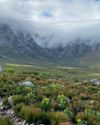
CAPE crusade
The Cape Bird Club/City of Cape Town Birding Big Year Challenge
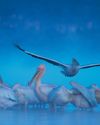
water & WINGS
WATER IS LIFE. As wildlife photographer Greg du Toit knows better than most.
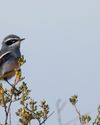
winter wanderer
as summer becomes a memory in the south, the skies are a little quieter as the migrants have returned to the warming north. But one bird endemic to the southern African region takes its own little winter journey.
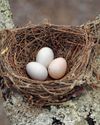
when perfect isn't enough
Egg signatures and forgeries in the cuckoo-drongo arms race

Southern SIGHTINGS
The late summer period naturally started quietening down after the midsummer excitement, but there were still some classy rarities on offer for birders all over the subregion. As always, none of the records included here have been adjudicated by any of the subregion's Rarities Committees.

flood impact on wetland birds
One of the features of a warming planet is increasingly erratic rainfall; years of drought followed by devastating floods. Fortunately, many waterbirds are pre-adapted to cope with such extremes, especially in southern Africa where they have evolved to exploit episodic rainfall events in semi-arid and arid regions. But how do waterbirds respond to floods in areas where rainfall - and access to water - is more predictable? Peter Ryan explores the consequences of recent floods on the birds of the Western Cape's Olifants River valley.
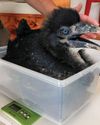
a star is born
It’s every producer’s dream to plan a wildlife television series and pick the right characters before filming.